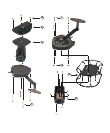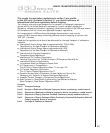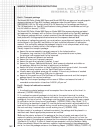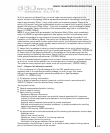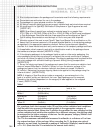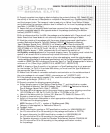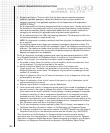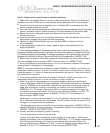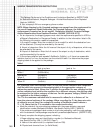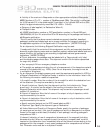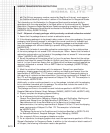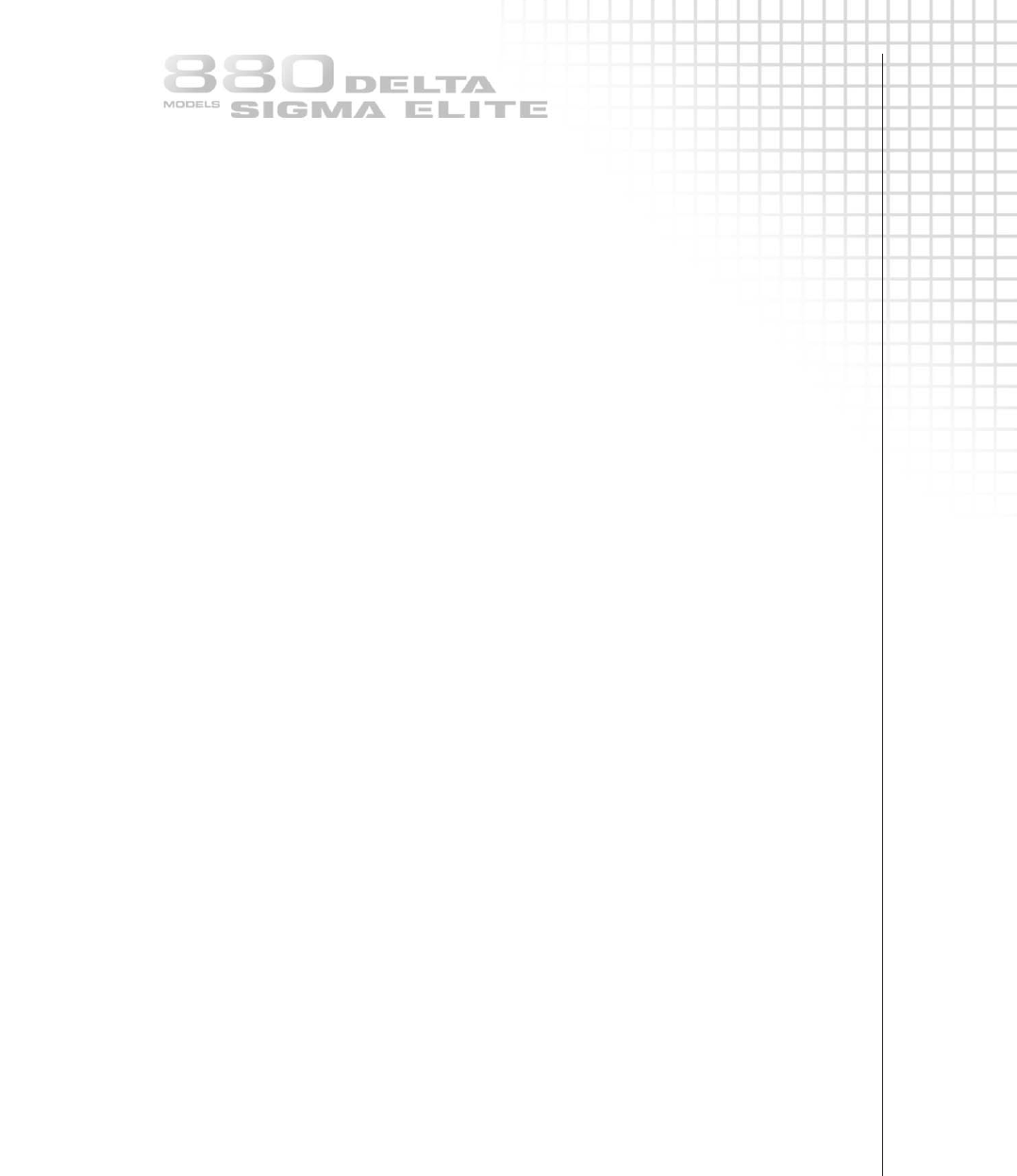
5.3
SAMPLE TRANSPORTATION INSTRUCTIONS
3c If the source is not Special Form, you must make a contamination wipe test of the
exterior surface of the package. Wipe a representative surface of the package, covering an
area of approximately 300cm
2
, using a cloth patch and moderate pressure. Measure the
activity on the patch using the contamination monitor and assure that the activity does not
exceed 0.001microcurie (37Bq)/100cm
2
. If this limit is exceeded, notify the Radiation Safety
Officer immediately. Record the results of this contamination wipe test on the Receiving
Report. [10CFR20.1906(d)]
NOTE: If any of these limits are exceeded, the Radiation Safety Officer must immediately
notify the USNRC (or applicable agreement state agency) and the final delivering carrier.
4 Inspect the package for any evidence of physical damage. Record the results of this
inspection on the Receiving Report. Also record on the Receiving Report the date, source
model number, source serial number, radionuclide, activity, the individuals name making the
record, transport package model number, mass or activity of the depleted uranium and the
package serial number. [10CFR34.63]
5 Assure that the package is locked or place the package into an outer locked container.
Secure the package in accordance with your license requirements. [10CFR34.35, 10CFR34.23]
6 Keep a copy of the Operating Manual for the package on file to assure you have the
proper opening and handling instructions. Assure that the instructions are followed and any
noted special precautions are performed. [10CFR20.1906(e)]
Note: For licensees transporting special form sources in licensee owned or operated vehicles
to and from a work site are exempt from the contamination monitoring requirements.
The radiation survey required upon receipt must still be performed. [10CFR20.1906(f)]
Part C - Shipment of radioactive material
1 Prior to shipment of a Type B package within the USA, assure that you are a
registered user of the radioactive material package you wish to ship. Also, assure
that you have appropriate quality assurance procedures for Type B packages.
[10CFR71.12, 10CFR34.31(b)]
2 Pre-shipment training requirements
Prior to shipping hazardous materials, personnel must be trained in accordance with
49CFR172, Subpart H and be retrained every three years.
Training shall include:
●
General awareness/familiarization training.
●
Function specific training.
●
Safety training, providing:
- Emergency response information.
- Measures to protect employees from potential hazards associated with hazardous
material to which employees may be exposed in the workplace, both radioactive and
chemical hazards.
- Employer safety measures implemented to protect employees.
- Methods and procedures for accident avoidance, i.e. proper procedures for handling
hazardous material packages.
- OSHA or EPA training, MSDS information.
●
An appropriate test must be administered and the following documentation must be kept:
- Employee name.
- Date of most recent training.
- Description, copy or location of the training methods.
- Name of person performing training.
- Certification that person has been trained and tested.
Documentation should be kept in one file, i.e. all radiation safety related training used as
part of the Hazmat training should be included.








